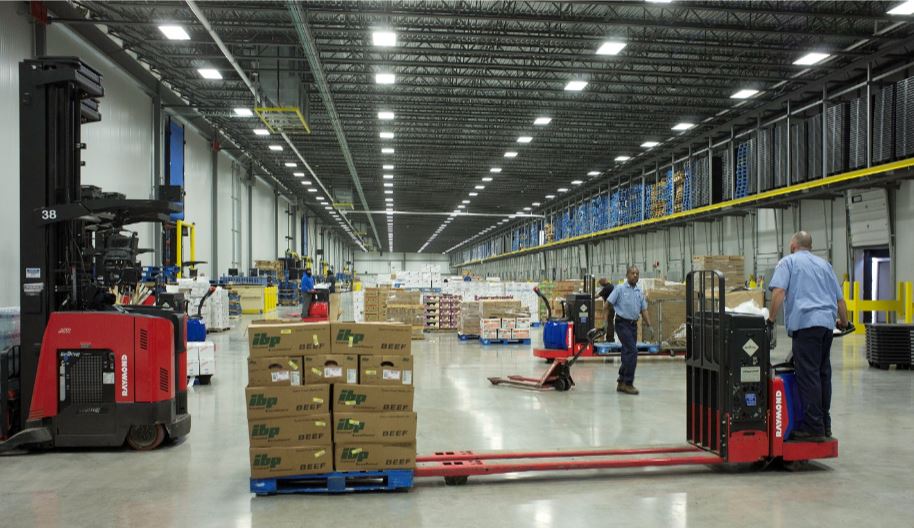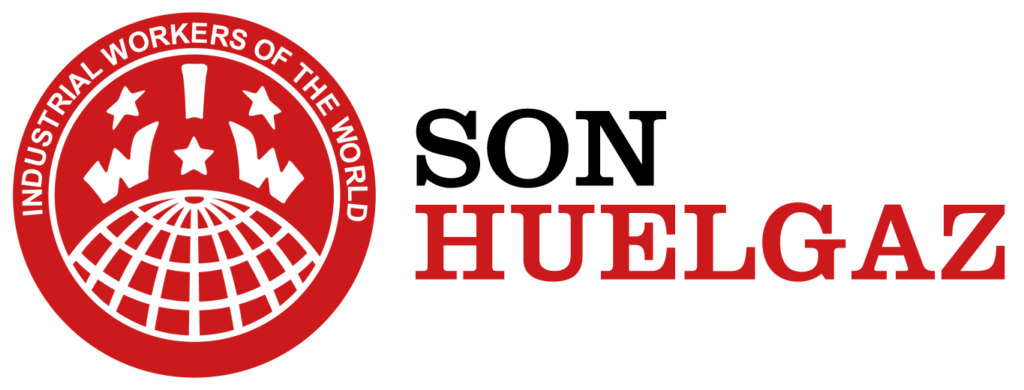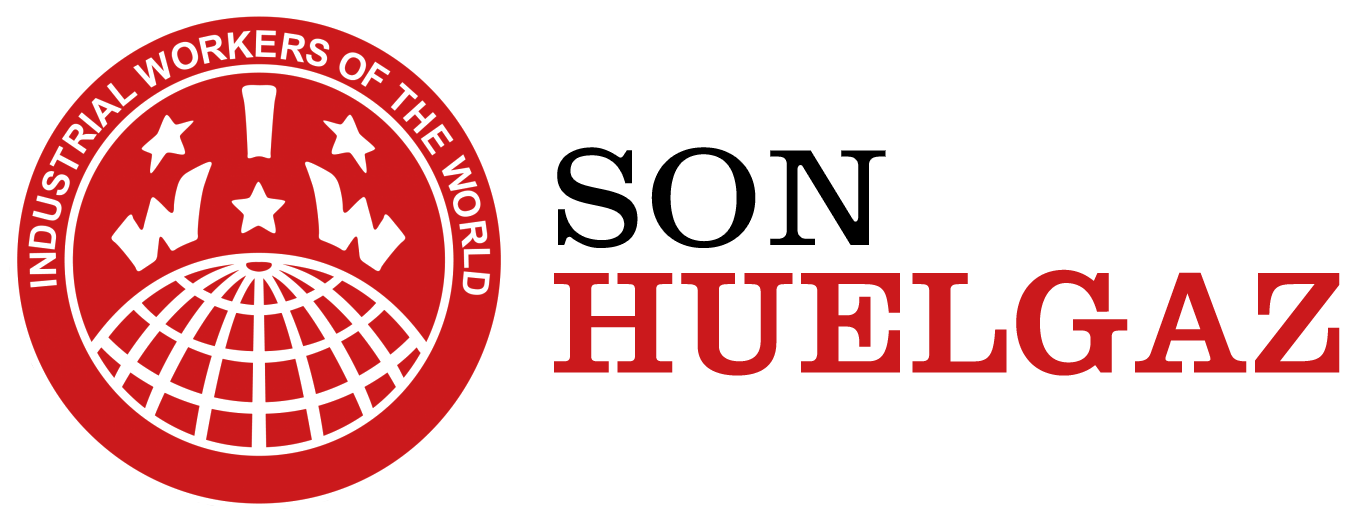
by: Captain E. Z. Feria
For nearly 10 years, I was employed at a Shamrock warehouse in West Phoenix. During my time there I worked nearly every position in the warehouse, beginning in a low-paying, heavy manual labor role to, many positions later, eventually being promoted to a ‘Captain’ in my last years there. As a Captain, I was responsible for a specific section of the warehouse and in charge of overseeing and delegating tasks to an outbound/shipping team of employees assigned to that section. The Captain position was usually assigned to veteran (as in experienced) employees who were dependable and well-rounded physically and mentally, capable of doing everything the co- workers they oversaw did.
Warehouse work was often difficult and exhausting, but I initially appreciated that it was fast- paced and required a lot of quick thinking and impromptu problem solving. Also in my Captain position, I got to enjoy a pretty high level of autonomy with regards to the freedom I had to complete tasks and conduct my “team”. There was very little baby-sitting or interfering from my supervisors, and as long as the routes were closed on time and any issues were taken care of, the bosses didn’t really care. I was also fairly satisfied with my pay and the benefits package was relatively decent too.
There were more than a few things I didn’t like about that job, though. First of all, most of the warehouse is refrigerated and many areas were actually subzero, so it was a constant struggle to stay warm throughout the day. It’s also relatively unsafe because of the high amount of industrial equipment (forklifts, pallet jacks, etc.) being operated in such a fast-paced, confined environment. Though the position of Captain may sound like an easy, lower-managerial job, it could be tough and stressful at times. Captains usually needed to help out or take over for their team members if they fell behind the unreasonable pace of the shipping schedule, forcing them to perform double duties many times per day. Also, the hours were very long with overtime usually mandatory. I worked anywhere between 50-60 hours a week, and even more during the height of COVID. I got used to only getting about 5 hours of sleep at night, often choosing to forgo eight hours of sleep because, at that time, I refused to let the long hours cut into my off-work “leisure” time.
I would’ve loved to change everything I disliked about the job and more if possible, but if I could only have changed three, they would’ve been:
- 1.) Putting a limit on the mandatory overtime work hours to make a balanced work/personal life somewhat more feasible.
- 2.) Increasing the pay. The pay hadn’t genuinely increased since before I began working there. Every year or so they tweaked the employee pay-scale-productivity charts to make it seem like more pay was possible.
- 3.) Successfully unionizing the place. A decent attempt was made to unionize the place while I worked there, but it was ultimately defeated due to the company’s anti-union, misinformation campaign.
For a thought experiment, if I were to imagine the worker-led Revolution took place and the warehouse workers were now in charge; it would be hard to imagine the facility not being run entirely differently. I’d like to believe management by the workers wouldn’t be so centered on greed, profit, and productivity to the detriment of everything else, so it’d be easy to assume that every aspect of that warehouse would be run in a more humane and safe way. The capitalist philosophy of normalizing absolute nonstop greed has so many negative repercussions in every aspect of industrialized workplaces. From worker hours, wages, safety, mental health, benefits, and even basic processes, such as going to the bathroom whenever you need to, or being able to wear comfortable clothing, none of these are really deemed important considerations by most managerial overseers.

Workers have to abide by the rules of their employers. More often than not, these employers don’t care about the humane or ethical considerations we take for granted in our personal life outside of work. The bosses effectively reduce us to sub-humans and submit us to their control while in the workplace. If the warehouse were under the control of sensible, humane, ethically minded, non-authoritarian, worker-directed management, it’s pretty safe to believe that everything would change for the better in terms of working conditions and worker treatment.
I officially joined the IWW in 2019, when the Phoenix branch was reestablished. However, my history with the IWW started many years before that, about a year before my start at the warehouse job. I can plausibly say that the labor organizing efforts of the IWW resonated with me through my full-time warehouse position as well, and the various IWW talks and educational presentations about labor and bosses, wages and profits, and such stuck with me throughout my years there.
Although I might now call myself a “libertarian eco-socialist,” I have found that I’m very much in agreement with most socialist and Marxist theories. The Marxist critiques of capitalism and labor employed in classes and presentations by the Phoenix IWW were some of the first exposures I had to socialist politics.
Before becoming a Wobbly, I had been more or less anti-capitalist for years. My understanding of labor theory, workplace systems of control and oppression, unions and union organizing, class consciousness, and anti-union tactics have become much greater and coherent since joining, though. This has been more or less an intentional process on my part, through attending meetings and engaging with labor discourse alongside other members to proactively try and learn more.
Though I wish it did, becoming an IWW member doesn’t automatically make you knowledgeable about labor theory and practices, or change your perspective about labor and the workplace overnight. You need to dig into it and ask questions if you’re really committed to learning more and striving to shift your point of view about workplace equity and equality. However, I’d say being a member of the IWW definitely contributed to making me recognize how systematically unjust workplace standards have become; how oppressed and exploited workers truly are; and how pervasive those injustices are without unions to guard employees against them.
I ultimately left the warehouse ‘Captain’ job for a variety of reasons. As my ten-year anniversary approached, I had achieved a sought-after, comfortable position and was on track to become a supervisor which would’ve cemented my warehouse career until retirement. But I realized that I didn’t want to waste my life working there anymore. A Shamrock job was always just an income to me, but the class consciousness and labor knowledge I gained through my IWW membership, and discourse with other Wobblies, certainly contributed to my decision to quit. It gave me a critical eye about my working conditions and helped raise my awareness about how so many people are compelled to spend their lives toiling in subpar conditions while making executives and bosses rich off their labor.

There were many more reasons for quitting though: experiencing Shamrock’s anti-union misinformation tactics and their terribly inadequate response to the COVID pandemic stand out to me: a response which led to most of the warehouse employees catching it, subsequently leading to mandatory, increased hours for everyone else to make up for the lost productivity due to the lack of manpower. Additionally, Shamrock is privately-owned by the conservative McClelland family whose executive board shares many members of the right-wing Goldwater Institute. Knowing this didn’t make me enjoy working to increase their company profits.
I made a decision several years before I quit to go back to school and pursue a path I really wanted, rather than waste any more years of my life settling for a stable but miserable career. As Trump’s presidency increased the harmful, racist rhetoric and misinformation surrounding our migrating fellow workers, I felt the need to try to do something about it. I moved to Tucson, earned a BA in English, and am now about to begin graduate school. With my degree I hope to play a role in pushing for humane and progressive Border and Immigration reform and hopefully defunding and dismantling Border Patrol and ICE, too. I believe the US government’s border enforcement tactics and immigration policies are inherently racist and unconscionably deadly, directly resulting in the deaths of innumerable immigrants.
But it doesn’t have to be this way. All of us, whether we are stuck working in a warehouse or stuck waiting at the border, are just hoping for a chance to improve our lives.

